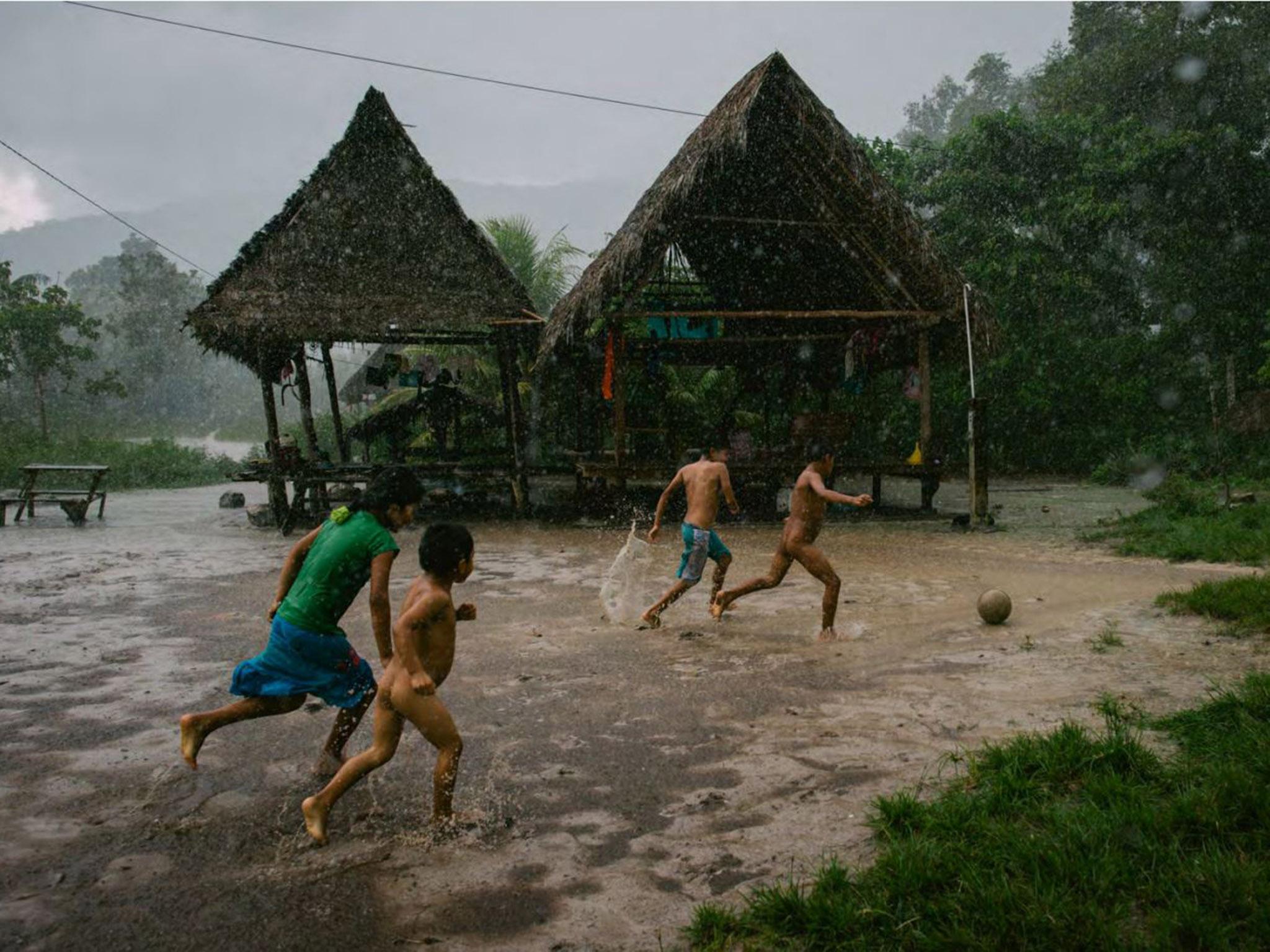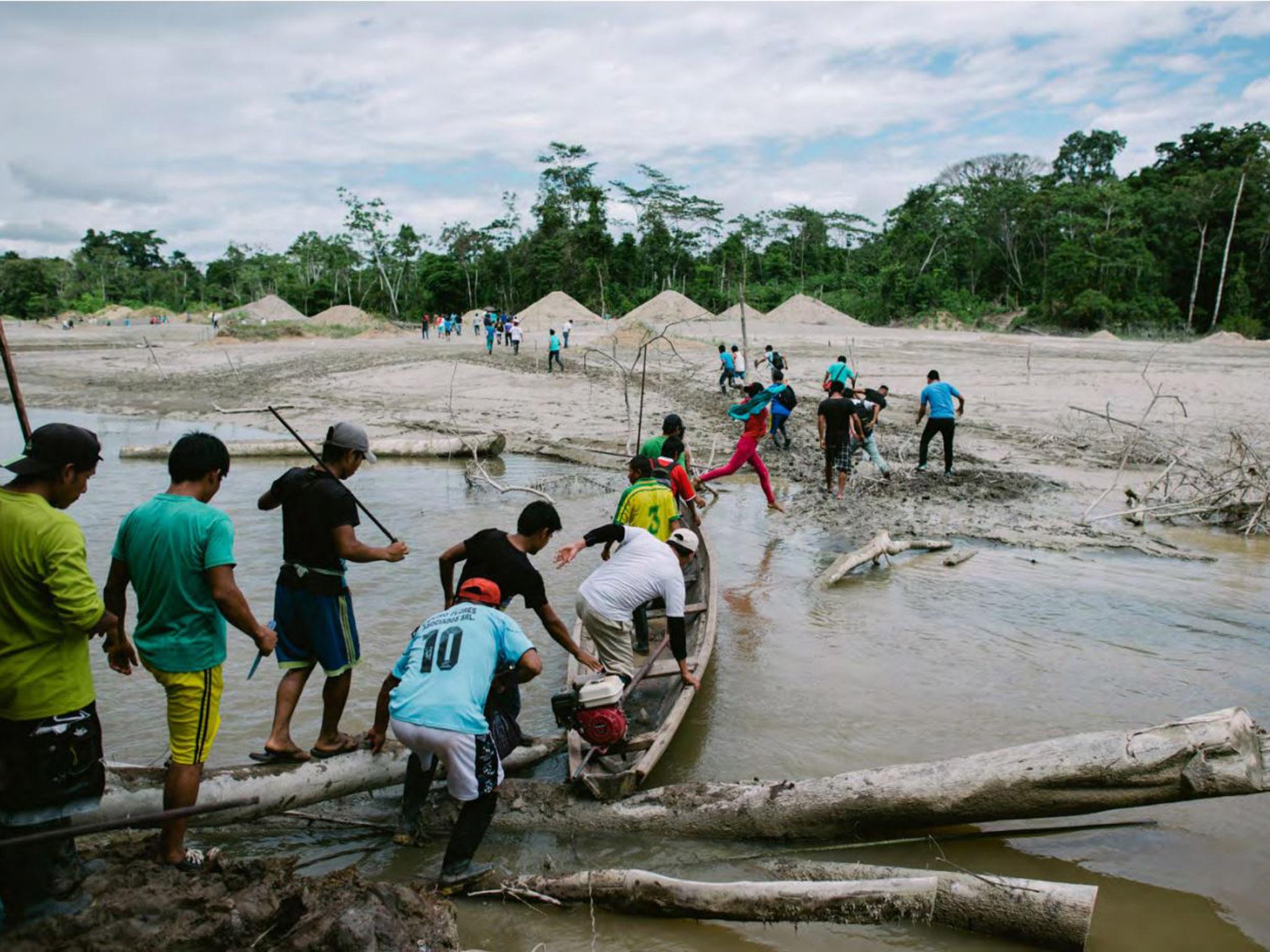Peru’s first autonomous Indigenous government wins major victory taking on oil companies
It was less than two years ago that the Wampis became the first Indigenous community in Peru to declare themselves a self-governing community. This week they approached the Peruvian government, seeking formal recognition of their autonomy in a bid to protect themselves and their land from exploitation

Your support helps us to tell the story
From reproductive rights to climate change to Big Tech, The Independent is on the ground when the story is developing. Whether it's investigating the financials of Elon Musk's pro-Trump PAC or producing our latest documentary, 'The A Word', which shines a light on the American women fighting for reproductive rights, we know how important it is to parse out the facts from the messaging.
At such a critical moment in US history, we need reporters on the ground. Your donation allows us to keep sending journalists to speak to both sides of the story.
The Independent is trusted by Americans across the entire political spectrum. And unlike many other quality news outlets, we choose not to lock Americans out of our reporting and analysis with paywalls. We believe quality journalism should be available to everyone, paid for by those who can afford it.
Your support makes all the difference.It has been less than two years since Peru’s Indigenous Wampis community declared itself a self-governing community.
The Wampis Statute is built strictly on the obligations of the Peruvian state to respect the rights and autonomy of indigenous peoples and nations. Among other principles, the statute requires that any activity that could affect Wampis' territory secures the free, prior and informed consent of the Wampis nation.
The historic move, which the Wampis argue is in line with the obligations of the Peruvian state to respect the rights and autonomy of Indigenous peoples and nations, was the first of its kind in Peru, giving the Wampis the ability to protect themselves and their land from oil and mining companies, as well as illegal logging and palm oil plantations.
The Wampis people have lived on the same land on the Rio Santiago and Morona watersheds 1,500 km north-east of the Peruvian capital Lima, for at least 7,000 years, according to the Wampis government.
Yet, until the community formed its own government the Wampis had virtually no say in what happened to their territory, which the Forest Peoples programme says is five times the size of Luxembourg and home to roughly 15,000 people.
Now that they have established their own self governing organisation the Wampis are exercising their rights as indigenous people to autonomy to fight major oil companies threatening their land.
In March, the community won a major victory, with the Fourth Constitutional Court of Lima ruling that a private oil company granted permission from the Peruvian government to run assessments on the Wampis’s land could not continue their work without the approval of the Indigenous group’s government.
The oil firm was forced to halt their work until they had undergone consultation with the Wampis and received their consent to continue – but the company has not yet attempted to consult the Indigenous community.
From now on, if the Peruvian government disagrees with decision made by the Wampis government, it will have to take the Indigenous community to court. But the Wampis still want Peru’s government to formally recognise their autonomy to govern as an Indigenous people within Peru.
They approached the Commission of Indigenous Peoples on Tuesday to help them become recognised as self-governing community.
For the Wampis, who refer to themselves as a Forest Peoples, the forests and mountains are considered sacred.
“It is simultaneously the source of their identity and history, their way of life and their future,” says Dr Conrad Feather of the Forest Peoples programme.
“Yet, this future is uncertain as this territory is under threat from the voracious demands of the global economy and the Wampis’s own integration into a global market and Peruvian society.”
The Peruvian government’s approval of laws granting private companies access to Indigenous lands for extractive industries have sparked deadly protests in the past.

A free trade agreement between Peru and the United States sparked deadly protests in 2009, with Indigenous groups rallying against the deal that gave oil companies access to the Amazon jungle. Thousands of Indigenous people gathered on Devil’s Curve, a motorway near Bagua, to block the oil company from accessing the jungle. The standoff resulted in the deaths of 32 people – 23 police officers and nine protesters – on 5 June, in what is now known as the “Bagua massacre”. Hundreds more were reportedly injured and arrested during the protests.
One of the Wampis’ community’s leaders, Andres Noningo, says that while the community does not seek full independence from Peru, it wants to be able to protect itself from companies and politicians “who are only able to see gold and oil in our rivers and forests”.
The Wampis are the first Indigenous group in Peru to declare their autonomy in this way, but Dr Feather says there are similar efforts underway by communities in Ecuador, Colombia and Brazil.
He says he believes more communities will follow suit, which could mark a major shift in the way that governments engage with Indigenous groups in the future.
Join our commenting forum
Join thought-provoking conversations, follow other Independent readers and see their replies
Comments